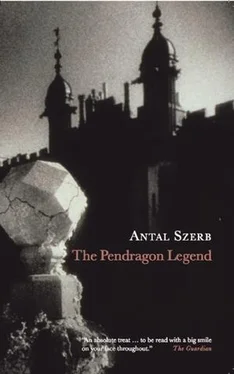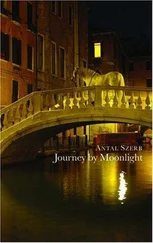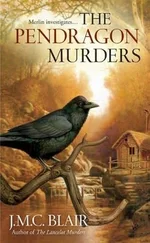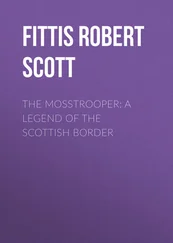“True, János. But that’s not why I described him as an odd character. He really is odd. Anyone will tell you that. But the other stories I’ve heard about him are so absurd and nonsensical I’d better not repeat them.”
“Let’s hear some of this nonsense.”
“Well … for example, what should I make of the story that he buried himself like a fakir, and after two years, or two weeks — I forget which — they dug him up and found him in perfect health? And in the war, they say, he went around during the gas attacks without his mask on and suffered no ill effects. He’s supposed to have magical healing powers. The most incredible of these stories is that he revived the Duke of Warwick a day after his doctors had pronounced him dead. There’s a rumour that he has a huge laboratory in Wales where he carries out strange experiments on animals. And he’s created some new creature that comes alive only at night … He doesn’t make any of this public because he loathes the democratic nature of the sciences. But it’s all nonsense. All I know is that, in company, he’s always extremely kind, and no one ever notices anything at all strange about him. But he isn’t seen very often. He doesn’t leave his castle for weeks on end.”
With that, he leant over towards me and whispered in my ear:
“Mad as a hatter!”
And he left me there.
In the course of the evening I successfully contrived a second meeting with the Earl. I sensed that he found me not uncongenial. He told me my eyes reminded him of a seventeenth-century doctor, one Benjamin Avravanel, whose portrait hung in his castle. The man had been murdered.
I won’t transcribe the long conversation we had, particularly since I did most of the talking while he asked the questions. And though I never did discover why the Earl was interested in Fludd, the discussion was not unproductive. I seemed to have gained his sympathy because, as we parted, he said:
“There are some old volumes on your subject in the possession of my family. If the mood takes you, do call in at my little place in Wales, and spend a few weeks there, looking them over.”
I felt the honour keenly, but am so idle by nature I would never have taken it seriously. However a few days later I received a written invitation that actually specified a date. That was how it all began.
I mentioned the invitation to one of my friends, Cecil Howard, an employee of the British Museum working on a subject related to my own. When he heard the news, the colour drained from his face.
“Bátky, you’re a lucky dog. In this country it’s only foreigners who get that sort of chance. Wonders are spoken of the Pendragon Library. But since Sackville-Williams was there to catalogue it, eighty-five years ago, no one with any expertise has been allowed in. The Pendragons have been reclusive for centuries. If you work up the material they’ve got there you’ll be the leading authority on the history of seventeenth-century mysticism and the occult.
“My God,” he sighed, sounding utterly deflated. “You’ll write the Life of Asaph Pendragon. You’ll get telegrams of congratulation from America, and five PhD students will come on annual pilgrimage from Germany to consult you. You’ll even get a mention in the French journals. And apart from all that, it’s quite something to be invited to Llanyvgan. It’s the finest and most exclusive castle in Wales.”
I left him to his envy. A colleague’s envy, when all is said and done, is the scholar’s one reward on earth. I didn’t tell him that in all likelihood I wouldn’t be publishing anything. My nature is to spend years amassing the material for a great work and, when everything is at last ready, I lock it away in a desk drawer and start something new. I had in fact revealed my horror of writing for publication to the Earl and had met with his full sympathy. I think the confession may well have led to the invitation. The Earl felt sure that the outcome of my researches would not be any sort of masterwork.
I also concealed from my colleague one fact he would have sneered at from the dizzy heights of his learning: that it was the living Earl of Gwynedd rather than the dead Robert Fludd that had seized my imagination. The Earl’s face, his person, his whole being, together with the tales Fred had told me, had set my mind racing. He seemed to embody an historical past the way no book ever could. My intuition told me that here was the last living example — and an exceptional one at that — of the genuine student of the arcane in the guise of the aristocrat-alchemist, the last descendant of Rudolph II of Prague, one for whom, as late as 1933, Fludd had more to say than Einstein.
I tell you, the invitation thrilled me. To pass the intervening time — and what else could anyone like me, seeking spiritual adventure, do in my position? — I set about researching the family history. I found a mass of material in the Dictionary of National Biography , and enough references to occupy me for a month of full-time work.
The Pendragons trace their origin — though I notice the line isn’t exactly clear — to Llewellyn the Great. This is the Llewellyn ap Griffith who was beheaded by Edward I, the king whom János Arany immortalised for the young reader in Hungary as riding a pale-grey horse. The old Welsh bards who went to their death in the flames singing like the doomed heroes of their own tragic art were in fact being punished for praising the house of Pendragon. But all this is in the mists of the past. These are the medieval Pendragons, living with their half-savage tribes among the great mountains: in their wars against the English there is something redolent of the hopeless struggle of the American Indians.
Then a strange incident disturbed the tranquillity of my studies.
I was smoking my pipe in the foyer of the hotel one evening, in the company of Fred Walker, when I was called to the phone.
“Hello, is that János Bátky?” a man’s voice asked.
“Yes.”
“What are you doing at the moment?”
“I’m talking on the phone. Who are you?”
“Never mind. Are you in an enclosed booth?”
“Yes.”
“János Bátky … you would be well advised not to get involved in other people’s affairs. You can be quite sure that the people you are working against are aware of your movements.”
“I’m sorry, there must be some mistake. I’ve never worked against anyone. This is János Bátky speaking.”
“I know. Just bear this in mind: everyone who pokes their nose into the Earl of Gwynedd’s little experiments comes to a sticky end. Dr McGregor died in a road accident. The same thing could happen to Dr Bátky”.
“Who is this McGregor?”
“Your predecessor.”
“My predecessor? In what way?”
“I can’t speak more openly. The less you know about this, the better for you. All I can tell you is: stay in London.”
“But why?”
“The air in Wales won’t do you any good. You must sever all connection with … ”
He was trying to articulate something.
“Hello, hello … I can’t catch what you’re saying. Can you speak more clearly …?”
But he had hung up. I went back to Fred, thoroughly agitated, and told him what had passed.
“Strange … ” he said, and tapped the ash from his pipe into the fireplace, seemingly lost in thought.
“Fred, for God’s sake, don’t be so damn English. Say something. Can you think of no explanation?”
“Well, I did tell you the Earl of Gwynedd is an odd fellow. Everything to do with him is a bit weird. You’ll certainly have some unusual experiences at Llangyvan.”
I leapt to my feet and began pacing rapidly back and forth. The mere thought of travel upsets me at the best of times, even without this sort of mysterious threat.
Читать дальше












